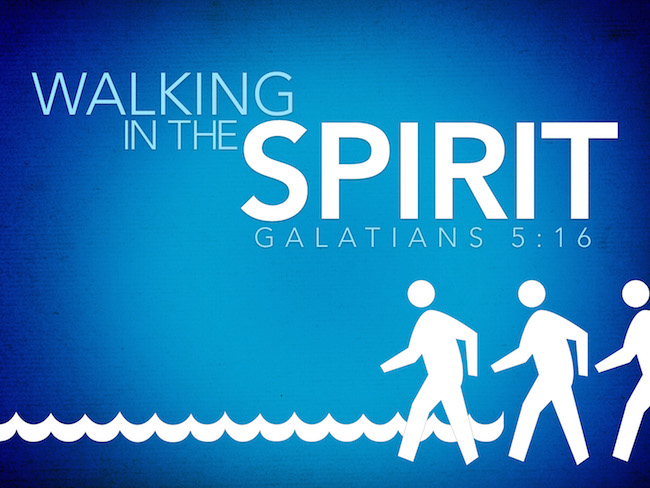The other day I visited my local barber. As I was sitting in the chair getting my haircut the barber, whom we’ll call Eli, received several phone calls on his cell phone and of course he had to answer every single call. Thankfully, I had time and didn’t get irritated. The fact that Eli is a nice guy and was apologetic about each call that he received helped as well.
The second or third time his phone rang Eli answered as usual and put the phone on his ear cradled by his shoulder as he continued to cut my hair. I didn’t mind as long as he didn’t cut my ear or get distracted and cut my hair in an uneven manner. Because of the close proximity to Eli I couldn’t help but overhear his brief conversation with his friend.
During this conversation Eli’s friend mentioned something to Eli and Eli responded by giving praise to God. Eli is a religious Jew. His friend was surprised at Eli’s response and must have asked him why he responded this way. I can only imagine that his friend shared something not too positive and was confused by Eli’s response. Eli told him that he recently learned that it is good for us to give thanks and praise to God no matter what circumstances we face in life, even when it is something difficult and we don’t understand it.
In Everything Give Thanks
I was very impressed with this simple lesson that Eli shared with me indiscriminately via his conversation with his friend on the phone. Eli reminded me of the simple spiritual truth in life that it is always good to give thanks to God, even when it is difficult. The Scriptures continually exhort us to “Give thanks to the LORD” (Psalm 136), to “Rejoice in the Lord always” (Philippians 4:4), and to “Rejoice and be glad” when we are persecuted for the sake of righteousness (Matt. 5:10-12). Living these truths out is not as easy as simply saying the words. I’m thankful to God for using Eli to remind me of this.
There is another Scripture in the book of James that exhorts the reader to take a different path, to choose the road less traveled, and to not give in to trials or temptations:
Consider it all joy, my brethren, when you encounter various trials, knowing that the testing of your faith produces endurance. And let endurance have its perfect result, so that you may be perfect and complete, lacking in nothing. (James 1:2-4)
The word for “trials” used in this verse can also be translated as “temptations.” Trials and temptations surround us everyday and we can choose how we respond to them. We can choose to be joyful and endure trials and temptations or we can give in to them by complaining, arguing, and having an ungrateful attitude. The choice is ours.
How do you respond to trials and temptations?
Do you respond with thanksgiving to God or with complaining and grumbling?
In this week’s Torah Portion we read of a situation where the children of Israel could have given thanks to God and endured their trials or given in to their trials and temptations during their journey in the desert. Unfortunately, they didn’t choose well and the results were catastrophic.
The One Year Mark
It had been exactly one year since the Israelites had left Egypt. The first year had been challenging, however, outside of the golden calf incident the people had been fairly stable and followed after God. The Tabernacle had been erected and the altar officially dedicated (Num. 7). God commanded Aaron to light the seven lamps in the Tabernacle and the Levites were to prepare themselves for the service of the Tabernacle (Num. 8).
God then commanded the sons of Israel to observe the Passover at its appointed time, on the 14th day of Nisan in the second year and they did so (Num. 9:1-5). Well, at least the ones who were clean. There were some who were considered unclean and they had to wait until the next month to observe the Passover (Num. 9:6-14).
God was leading the people in a cloud by day and by fire at night. “At the command of the LORD they camped, and at the command of the LORD they set out; they kept the LORD’s charge, according to the command of the LORD through Moses” (Num. 9:23). At the mark of the first anniversary of the Israelites officially being the people of God as a nation everything was going smooth. The LORD was their God and the Israelites were His people.
Trials in the Wilderness
Just when everything seemed to be going so well between the Israelites and God, the people began to complain. “Now the people became like those who complain of adversity in the hearing of the LORD” (Num. 11:1a). The Hebrew word used for “complain” here is a unique word in the Bible as it is only used here and in Lamentations 3:39. It is the Hebrew word מתאננים – “mitonennim.” This Hebrew word is from the root word אנן – “anan” and means to mourn, lament, bewail, complain, grumble, or protest. The text tells us that the people were “complaining of adversity.” The word for “adversity” used here is the Hebrew word רע – “rah” and it simply means bad, evil, adversity, or wretchedness.
What was this great evil that the people were complaining about?
What was the wretchedness that was worthy of grumbling and protesting about?
The text does not tell us immediately that there was a specific focus of the people’s complaining, however, it does tell us that God’s anger was kindled as a result and burned among them. The people cried to Moses, Moses prayed to the LORD, and the fire died down (11:1-3). We are not sure what the people were complaining about but it displeased the LORD.
The People’s Complaint
Immediately following this incident the people began to complain again.
The rabble who were among them had greedy desires; and also the sons of Israel wept again and said, “Who will give us meat to eat? We remember the fish which we used to eat free in Egypt, the cucumbers and the melons and the leeks and the onions and the garlic, but now our appetite is gone. There is nothing at all to look at except this manna.” – Num. 11:4-6
The text speaks of “the rabble among them.” This rabble is the mixed multitude that came out of Egypt (Ex. 12:38), referring to the Egyptians and possibly people from other nationalities that joined the Israelites when they left Egypt. These people had greedy desires, as the text tells us, and the Israelites joined with this mixed multitude and began to complain about the manna from heaven that God was providing for them daily. They reminisced about the wonderful selection of foods that they used to eat in Egypt and longed for the good old days of slavery compared to serving God in the desert. This complaining was a result of not being content with what they had and wanting to satisfy their fleshly desires.
God had faithfully been providing for the people at every turn. God performed miracle after miracle by the hand of Moses to set the people free from Egypt, crush their enemies, provide water, food, shelter, and protection but still the people found opportunity to complain. Their fleshly needs were not being met. They longed for meat and were fed up with the same old manna day after day. The people were literally crying and weeping all over the camp. The people’s greedy desires and unnecessary weeping provoked both Moses and the LORD to anger:
Now Moses heard the people weeping throughout their families, each man at the doorway of his tent; and the anger of the LORD was kindled greatly, and Moses was displeased. – Num. 11:10
God’s anger was kindled for a second time against the people and Moses was “displeased.” Our English translations often don’t do justice to the original text, as occurs here. The English word “displeased” in this verse is actually the Hebrew phrase, ובעיני משה רע – Oobe’anai Moshe Rah, which literally translated means “it was wretched in the eyes of Moses.” The complaining and weeping of the people for their own selfish desires appeared wretched, bad, or evil in the eyes of Moses.
The Hebrew word רע – rah is used throughout this section beginning in verse one when the people complained and first spoke evil, adversity, or wretchedness. This word “rah” is used several times in this chapter. We just saw how it was used in Moses’ reaction to the people, “It was wretched in the eyes of Moses” (Num. 11:10). Immediately following this verse Moses asked God “Why have You been so hard on Your servant?” (Num. 11:11) Moses literally asked, “Why have you dealt wretchedly toward your servant?” and he used a form of the word “rah” for the word “wretched.”
Moses came to the end of his patience with the people. Moses reminded God that these people do not belong to him and that he is not able to satisfy their demand for meat (Num. 11:12-14). Moses then asked God to take his life so that he did not have to see his wretched end: “So if You are going to deal thus with me, please kill me at once, if I have found favor in Your sight, and do not let me see my wretchedness” (Num. 11:15). Here again Moses used the same Hebrew root word “rah” to speak of his “wretchedness.” In essence Moses was saying that the evil and wretchedness of the people’s complaining was bringing him to a wretched end and Moses couldn’t bare it anymore.
The Result of Complaining & Evil Desires
I have much more I could write about this topic but I believe that I must bring this commentary to an end. As the word “rah” is used throughout this account, it is revealing to us the impact of complaining and evil desires that work in us. Complaining and giving in to evil desires is sin. They are an affront to God and only bring forth wretchedness and ultimately death. This subject is summarized well in the book of James:
Blessed is a man who perseveres under trial; for once he has been approved, he will receive the crown of life which the Lord has promised to those who love Him. Let no one say when he is tempted, “I am being tempted by God”; for God cannot be tempted by evil, and He Himself does not tempt anyone. But each one is tempted when he is carried away and enticed by his own lust. Then when lust has conceived, it gives birth to sin; and when sin is accomplished, it brings forth death. – James 1:12-15
There is blessing in persevering under trial and the result is life. On the other side are those who give in to temptation, are carried away by their own lusts, give way to sin and reap the penalty of death. All sin brings death!
How are you handling trials and temptations?
We generally cannot control the events and circumstances that surround us and at times overwhelm us, however, we can control how we respond to these circumstances. Are we going to be content with the manna that God has provided for us or are we going to allow the lusts within us to demand what our flesh desires? Are we going to persevere in our trials or give in to complaining?
The Pouring Out of the Spirit
God answered Moses’ request, although, not exactly as Moses had asked. God told Moses to gather to Him seventy men of the elders of Israel. God took the responsibility for the people of Israel. God was meeting Moses where he was at and wanted to multiply his leadership by 70.
“Then I will come down and speak with you there, and I will take of the Spirit who is upon you, and will put Him upon them; and they shall bear the burden of the people with you, so that you will not bear it all alone.” – Num. 11:17
God understood that it was too much for Moses to bear the burden of the people by himself. God’s solution to the problem that Moses brought to Him was His Holy Spirit. God placed His Spirit on the seventy elders and they prophesied (Num. 11:24-25).
A year prior to this, seventy different elders of Israel were chosen to judge the people (Exodus 18:17-27). What happened to these first seventy elders whom were chosen? Some believe that they were destroyed in the fire after the people complained in this incident in Numbers (Num. 11:3). Perhaps they were killed in the judgement after the golden calf incident (Ex. 32). We don’t know exactly, but they all must have perished by this time. God told Moses to choose seventy elders from Israel and that God would place His Spirit on them.
Moses was exhausted and he saw no other option but to quit the task that God had given him and bring his own life to an end. God responded by multiplying His Spirit among the people. Moses was ready to die and to go to the grave but God said No! Instead, God sent His resurrection power by the Holy Spirit to assist Moses in leading the people. It is the desire of God to pour out His Spirit upon all flesh so that we may know Him and have intimate communion with Him (Joel 2:28). Moses realized this as well as he responded to Joshua’s request to silence the two in the camp who were filled with the Spirit and prophesied: But Moses said to him, “Are you jealous for my sake? Would that all the Lord’s people were prophets, that the Lord would put His Spirit upon them!” (Num. 11:29) The Holy Spirit is God’s gift to us to lead us into all truth and guide us into paths of righteousness.
The Provision of God
In response to the people’s complaining and desire for meat, God promised to provide meat for a whole month (Num. 11:19-20). God sent the wind and brought quail into the camp. The people collected the quail for two full days (Num. 11:31-32). The people worked through the night to gathered as much as they could. They spent all their energy gathering quail. The people had plenty of energy to feed their flesh but they were weak in the spirit.
God provided the meat but then He also sent a plague upon the people for their greedy desires. Those who were greedy died and they were buried there. They named that place, “the graves of greediness” because there they buried the people who had been greedy (Num. 11:33-35).
Numbers chapter eleven begins with those who complain and are greedy in their desires – תאווה and ends with those who were greedy, buried in the graves. Sin brings death. We don’t always see it as dramatically displayed as here in this biblical account but this principle is always true.
In this week’s Torah Portion we see the battle between the flesh and the Spirit. We must choose how we will live out our days. We must choose daily whether to rely on the Spirit or give into the evil desires of the flesh. “But I say, walk by the Spirit, and you will not carry out the desire of the flesh” (Gal. 5:16). The Spirit gives life and we must learn to walk by the Spirit of God and not by our flesh.
Our words of complaining generally reveal the desires of our flesh. Yeshua said, “It is the Spirit who gives life; the flesh profits nothing; the words that I have spoken to you are spirit and are life” (John 6:63). Let us heed the teaching of Yeshua, rely on the Holy Spirit of God, and walk in life!
Shabbat Shalom!
If you enjoyed reading this article, we invite you to sign up for our weekly Torah Portion commentary on the sidebar to the right.
Torah Portion: Num. 8:1 – Num. 12:16
Hafatara: Zech. 2:10 – Zech. 4:7
Return to Torah Portion Homepage
Copyright Jewels of Judaism. All rights reserved 2015







